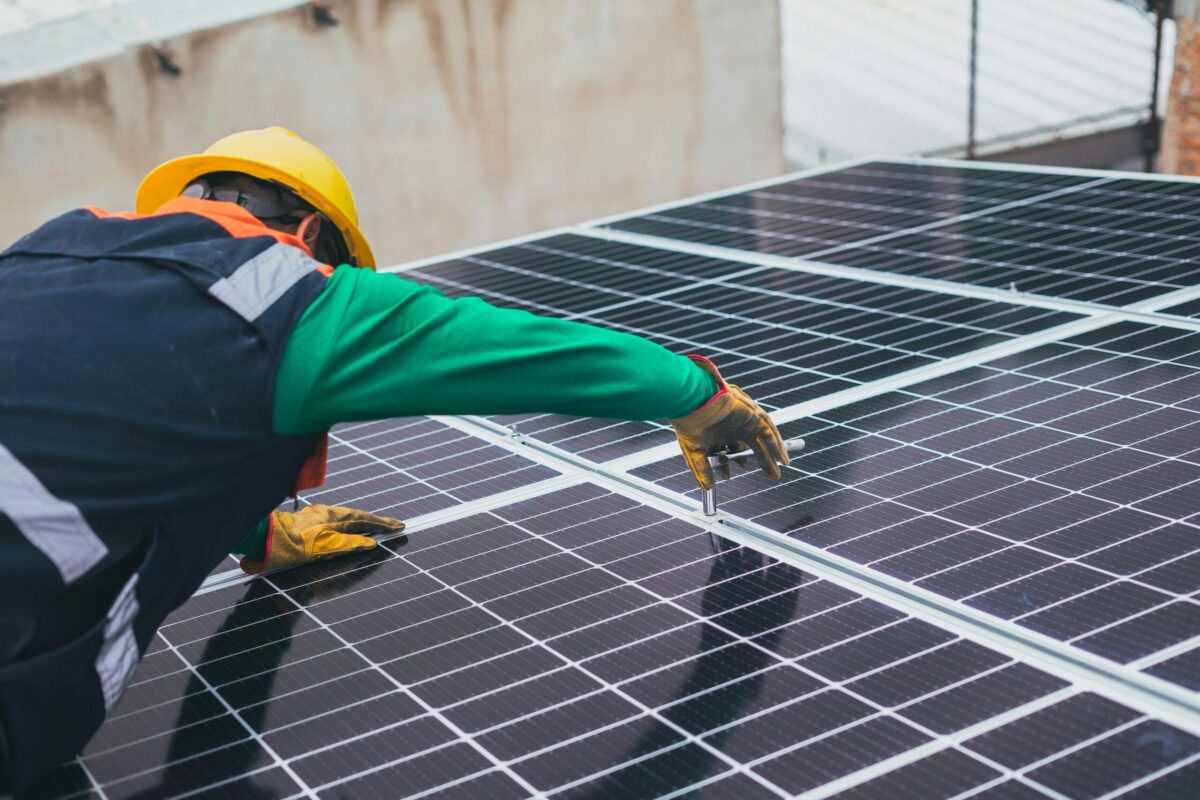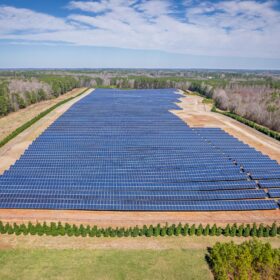In this week’s Startup Round-up, three businesses that are making potentially disruptive innovations in solar.
GoSun crowdfunds
“Glamping” is in full swing in the U.S., as the pandemic has driven vacationers to more remote and outdoor settings. In 2019, outdoor recreation accounted for $459.8 billion in spending, and that grew throughout 2020, said solar appliance maker GoSun.
Now GoSun is seeking investment via crowdfunding to scale-up its offerings of solar ovens, coolers, chargers, and even showers.

Image: GoSun
GoSun looks to make glamping “guilt-free” by integrating solar into appliances and reducing the carbon footprint of these activities. Campers and glampers disconnecting from the traditional grid, taking these integrated devices to whatever remote location has the sun shining.
Take the Chill cooler for example, a temperature-controlled device that can go down to –4 degrees Fahrenheit, make ice, and charge devices, all while running for 14 hours or more. The cooler is packaged with a table that has a built-in 60 watt panel.
The Flow solar water purifier and pump has a 2W solar panel, filters pathogens from water, and can pump directly into a sink or shower attachment.
GoSun said these devices could also be applicable in emergency situations like high-impact storms that knock-down the power grid.
Clamp down those panels!
Somerville, Massachusetts-based Greentown Labs has another innovator making innovations; this time it’s Vespr Solar, which just won a prize from the Massachusetts Clean Energy Center Catalyst fund to scale its wind-resistant panel clamps.
The clamps can be installed beneath modules, with no need for power tools during installation, said Vespr. Full panel install can occur in less than 30 seconds per module, and grounding and attachment are completed in one step.
With increasingly intensifying storms like Hurricane Ida that battered the country from Louisiana through New York, stability is key. Vespr’s “V-Clamp” can withstand 900 Lbf of uplift force. It also improves the weight distribution of the array, avoiding microcracks that can chip away at performance and durability.
Connecting small business to big solar
Large corporations like McDonald’s, Amazon, and Google have been signing low-cost power purchase agreements, long-term contracts that offer these companies savings, help them achieve emission reduction goals, and help bring more solar to the regions they operate in.
But for smaller businesses, the nature of these long-term contracts can be a barrier to entry. Nashville, Tennessee, startup Clearloop looks to address this.
There is no minimum required investment to get started with Clearloop, and once the startup has enough funding from a collection of brands, it arranges financing for the rest of its partners and starts construction. The power generated is then sold to the local utility. Businesses offset emissions with these contracts, keeping them in line with their own emission targets.
Clearloop focuses on where carbon emission reduction is needed most. Recently, the company built a 2,000-panel solar facility on one of the most carbon-heavy parts of the grid in Jackson, Tennessee. In Jackson, 1 MWh of electricity generated creates 1,038 lbs. of carbon emissions. In California, by comparison, the same power generation emits 786 lbs., said Clearloop.
Clearloop tries to address three things, said CEO Laura Zapata: Where are the sunniest places? Where is the grid the dirtiest? And where can a dollar invested in infrastructure go the farthest?
This content is protected by copyright and may not be reused. If you want to cooperate with us and would like to reuse some of our content, please contact: editors@pv-magazine.com.









By submitting this form you agree to pv magazine using your data for the purposes of publishing your comment.
Your personal data will only be disclosed or otherwise transmitted to third parties for the purposes of spam filtering or if this is necessary for technical maintenance of the website. Any other transfer to third parties will not take place unless this is justified on the basis of applicable data protection regulations or if pv magazine is legally obliged to do so.
You may revoke this consent at any time with effect for the future, in which case your personal data will be deleted immediately. Otherwise, your data will be deleted if pv magazine has processed your request or the purpose of data storage is fulfilled.
Further information on data privacy can be found in our Data Protection Policy.